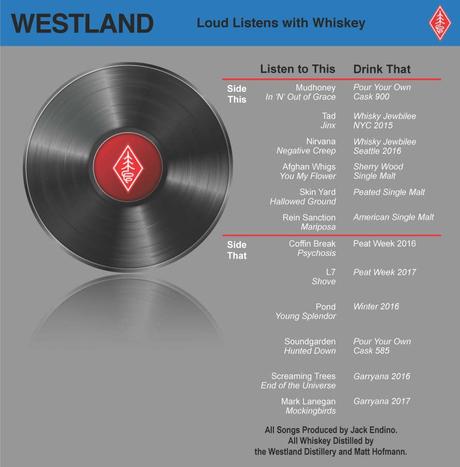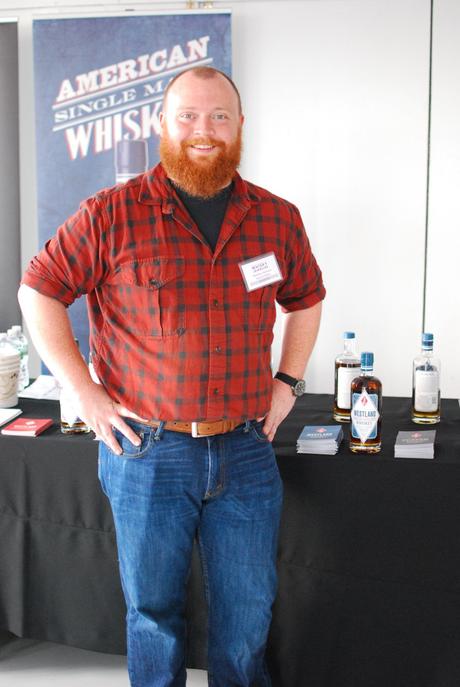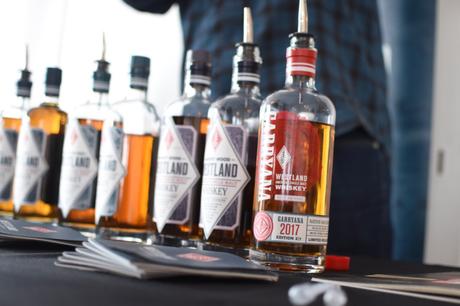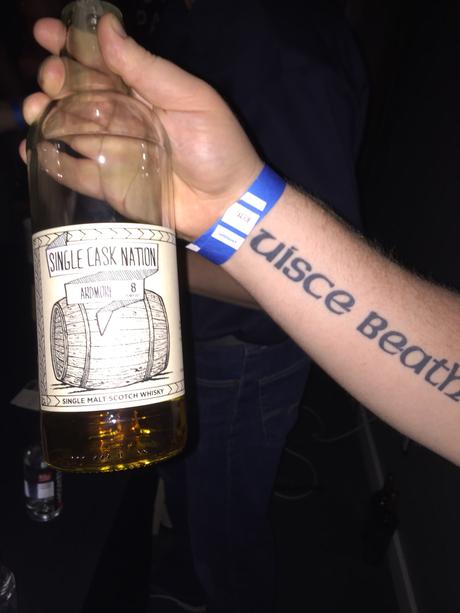
Making music is an art and an ability that is far beyond my wee brain. Zero musical skills were blessed upon me aside from whistling through my nose which annoys all in hearing radius, including me. I bow down to those that can do anything with a mere inkling of musical ability, rhythm, or that weird mathematical sensibility some are born with. And yet, music is an endless presence and topic of thought for me, and I often wonder how difficult the song crafting process must be.
It all starts with being pissed off about that girl/boy who left you/stayed with you, or that urge/need to scream in anger about The Man, work, traffic, global warming/cooling, or your endless sullenness/happiness/melancholy/itchiness, then taking those booze fueled half scribbles and thoughts penned on a napkin/free notepad from the local realtor, then making love/cops/rain/ire rhyme with stove/gumdrops/Euphrates/pliers in a pleasant sounding way, then getting your Linus-sized piano/dusty guitar with the two broken strings/two spoons and knocking out the greatest song of all time! But it's one thing to be able to write and play your little ditty, and a whole different skill to get that hot mess of a song to sound like something worthy to be put onto "wax", as they used to say in the olden days (that's "vinyl" for both of our readers under 25). It can be argued that this is the more difficult part in the process of a song's creation. For all the great singers and musicians there are, there are far less people who put all of the elements together for a final piece of work. The Producer in the studio is that somewhat unheralded person that weaves it all together into something cohesive and even more beautiful than the artist could have imagined. Cocktail napkin, meet symphonic masterpiece.
Making whisky has elements similar to making music. There are four basic elements that can vary here and there, and it's the job of the distiller and blender to somehow make sense of it all, take some chances, and make something beautiful (i.e. good to drink!) of them all; pleasing to the nose and palate, able to create a mood - a wonderful feeling for the drinker. Let's mention good to drink again minus the parenthesis.
In the 90's Seattle music scene, one producer stood out amongst the rest. Jack Endino was The Godfather of music production. And he's still cranking out new sounds with new bands. It's arguable that there was no explosion of the Seattle music scene without him. He took kids who wanted to be stars and knew maybe three chords then melded their work into something raw but clean, dark but beautiful, noisy but melodic, discordant but focused. He captured moments, sounds, and emotions. He pushed sliders and spun dials, honing youthful exuberance into... songs... into albums, changing the music world. His resume of artists that he produced is a Who's Who of the 1990's "grunge rock" era, and continues to this day. Again, there probably is no "that era" without him. No Sub Pop. No C/Z Records. No Nirvana... Not any of it.
Westland Distillery in the SoDo section of Seattle has it's own Jack Endino on a micro level. Making single malt whisky may or may not be like making music, but both surely require a deft touch, a creative bent, and an ability to see beyond the noise in front of you. Matt Hofmann is the master distiller and the man pushing sliders and turning knobs at Westland. While Endino takes voice, guitar, bass and drums and forms them into something tasty sounding, Hofmann does the same with water, barley, yeast and wood. No two bands or songs are the same and no two batches of whiskey are either.

Matt Hofmann looks ever the part of the great Northwest with his penchant for flannel and denim to go with a full red beard. He's a burly man, not Tad Doyle burly, but axe and pickup truck worthy, with a more than pleasant affability that makes him immediately likable. Listening to him rapidly talk about his favorite subject - making whiskey - you can easily feel a creative spirit within and a mind always spinning away wondering; wondering how to take the elements in his studio, to push and prod them into something that tastes beautiful.
The four basic elements of whiskey are just that: basic. To Matt, each are just headings at the top of the page with many iterations below to play with. Westland's credo is "Thoughtfully Made" and much thought goes into every "what happens if" and "let's try this" scenario of changing parts and processes. Mixing and matching from the lines on the pages in his book would seem to be a limitless enterprise, an experiment with no end. But it isn't any fun using the same old choices. Varieties of barley of all sorts (think: beer making), different yeast strains, and then the wood, water and...peat...permute like our favorite amino acids that make up all of us in our various versions. Take four instruments plus the musical scale, and the combinations are endless. Change that Gibson for a Rickenbacker, the Ludwigs for Zildjans, Vedder for Cobain. More possibilities. More sounds.
At a Westland event in Irvine, CA a few months back at a trendy restaurant in the scary shadow of a Google skyscraper, Matt spoke excitedly about all things whiskey, Westland, and their future. You could see and feel the music bouncing inside him. Much of what drives him is where he's from. He proudly says that there's a restlessness to the people in the Northwest; it drives the whole region. It drives change, curiosity, and innovation. For him and Westland (now buoyed by its new ownership and the deep pockets of Rémy Cointreau), the restlessness pushes them forward to try new things, to think outside of the old oak barrel, and to play with those basic components thoughtfully and differently.
The beer world per Matt is way beyond the whisky world in terms of innovation. Microbrews all over are experimenting with yeasts, barleys, grains, and flavors. The choices in your local craft beer retailer's aisles are downright scary. Not a beer drinker myself, I have no idea how those that do make a choice! So, why can't the whisky world innovate more? An unspoken (or under his breath spoken) thought of Matt's is that the Scotch industry is pretty boring as a whole. Much of that industry uses the least expensive barley and yeasts, he says, which can translate to a race to the bottom of the barrel. Westland is not interested in that, he says, nor in making traditional whiskey in the fashion of Scotch. No, it's about making good whiskey in new, interesting ways. Not just being different to be different. No one cares if you're producing different whiskey if it just tastes lousy.
Washington State is one of the top six barley growing regions in the world. There are great types of barley in Westland's own backyard; ones that many whisky producers would never think to try for malt. Matt wants to try them all and mix them with others available. More dial turning and slider pushing for this music man. Different yeasts like the beer folks use too. The notes on the page are the same, but the instruments are different. Different sounds, different flavors.

And then there's the wood. The great pronouncement in the industry ad nauseum is that "60 to 70% of the flavor of whisky comes from the wood". OK, we get it. Wood es muy importante! Hofmann and Westland want to play with that instrument the most, especially if it's so important. Last year saw the beginning of their Garryana Oak ( Quercus garryana) experiment. The only native Washington oak that's never been used for much besides furniture, Matt decided to see what would happen if barrels were made from it and aged the Westland spirit in it. After much searching around the state for the wood and barrels to be made from it, Garryana 2016, a robust peated expression, was born, though in limited supply that quickly sold out. Now we have the 2017 version minus the peat and softer around the edges. Matt says that there's many more experiments with the wood going forward. It's like someone gave him a violin or a gong to layer into the music for more textures and flavors.
Back in his college days, Matt did what most students of higher learning do. Well, most cool students. He built a still in his dorm. Go ahead and laugh; you wish you thought of it and had the guts to do it! But, no, you had to keep taking notes for Philosophy 101 in your three-ring binder and hanging out in the student union eating Doritos. You could have been experimenting in distillation one-o-one (not an accredited course) and becoming a noted whisky producer. The downside is having your mom find your still in your closet at home one day and thinking her son is the Meth King of the Northwest. "Jeez, Mom, THAT'S your first thought! Maybe I was making beer in college! She had to go right to meth making?!" Matt heartily laughs retelling this. Of course, the moral is that moms are crazy. He cut his teeth early on in this whiskey making thing and found his passion. He probably should have cleaned his closet better, but that's a story for another day.
Westland has become a leader in the American whiskey wave that's been sweeping the country with sights on the world. They have been leading the charge with other U.S. producers to have the federal government recognize a clearly stated definition of American Single Malt. There isn't one now, so it's a self-defined category from distillery to distillery. It's probably the only topic where Matt Hofmann wants clarity. He's quite happy to keeping making whiskey by pushing the water, barley, yeast and wood into different places where they've never been before in the world of distillation.

Matt's thick forearm is emblazoned with a tattoo - Uisce Beatha - marking him with his passion. Or maybe it's his band's name. He sure looks like he could be a bass player in a rock band with a big, deep rhythm section. Jack Endino would sure seem like a great choice to produce their new album, one with many rhythms, layers, and moods, pounding one's soul on one selection and making the hairs on the back of your neck stand up on another (probably a b-side). But maybe it's a self-produced effort. That's Matt Hofmann's true area of expertise at Westland.
Categories: Booze Banter, Booze Review, Westland
Tagged as: booze, Booze Banter, Drinkwire, Jack Endino, Matt Hoffman, Music, Pacific Northwest, Spirits, Sub Pop, Westland, Whiskey, Whisky

